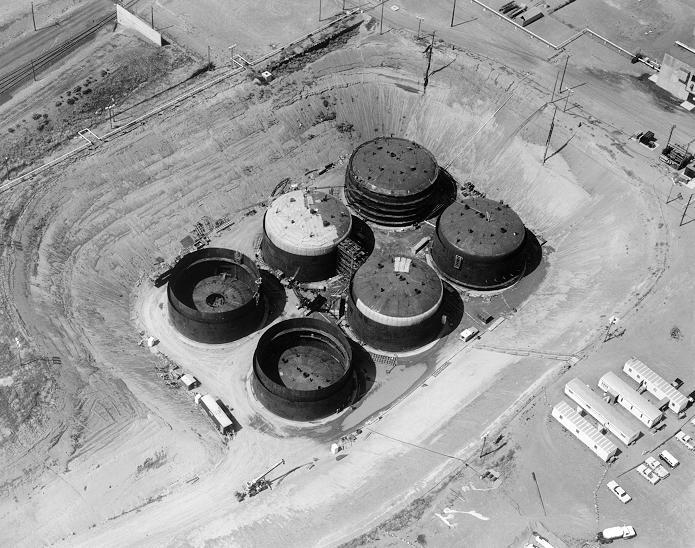

Hanford Site
Tank Farm
Photo Date: 17 April 1978
Photo Number: 303 058 001
The principal function of the tank farms is the safe storage of byproduct
material left over from plutonium extraction operations prior to permanent
disposal. This byproduct material has no useful purpose and is stored in 177
underground storage tanks with a cumulative total of 55 million gallons capacity, with individual tanks ranging up to 1,000,000 gallons (pictured). This waste
material is composed of toxic chemicals that were used to remove fission
products from irradiated reactor fuel. The more hazardous materials can be
divided into four groups: (1) the high heat load tanks, where water must be
added periodically to keep tank temperatures within allowable limits, (2)
ferrocyanide tanks, which are explosive at certain elevated temperatures, (3)
hydrogen generating tanks, and (4) tanks with organics that are flammable.
Little is known about the exact chemical content of the tanks; as a result, tank
characterization is a crucial, ongoing activity. Approximately 2,300 personnel
support tank farm activities; about 700 are in the operations organization and
are at the tank farms regularly.

http://www.fas.org/irp/imint/doe_hanford_tank_01.htm
Created by John Pike
Maintained by Webmaster
Updated Tuesday, December 30, 1997 10:19:25 AM



